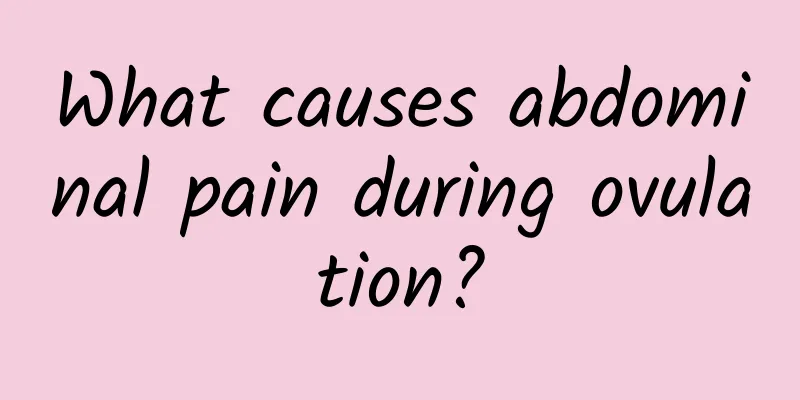What happens if fatty liver becomes serious?

|
The foie gras eaten in French cuisine is made from the fatty liver of geese, but if fatty liver occurs in a person, it will have a great impact on a person's normal liver function. However, in the elderly, the chance of developing fatty liver is very high due to long-term consumption of high-fat and high-protein foods. However, mild fatty liver does not cause obvious symptoms in patients, but what are the consequences of severe fatty liver? 1. What happens if fatty liver is severe? 1.1. Fatty liver refers to a disease caused by excessive fat accumulation in liver cells due to various reasons. It is a common clinical phenomenon rather than an independent disease. Its clinical manifestations range from asymptomatic in mild cases to severe in severe cases. 1.2. Once fatty liver is formed, fat can damage liver cells and impair the normal function of the liver. It also makes the liver fragile and more susceptible to various injuries. Under the microscope, we can see the swelling of liver cells, inflammatory infiltration and degeneration and necrosis of liver tissue, which eventually lead to the occurrence of some patients. However, it would be a big mistake to think that the damage caused by fatty liver is only to the liver. 1.3. The survey report shows that the prevalence of fatty liver increases simultaneously with that of diabetes. In patients with fatty liver, the risk of cardiovascular diseases such as diabetes, heart disease, dyslipidemia, heart disease, and stroke is significantly increased. About 80% of patients with type 2 diabetes have fatty liver. 2.1. Loss of appetite is one of the common symptoms of fatty liver. If it lasts for a long time, in addition to suspected gastritis and other diseases, the possibility of fatty liver should also be considered. 2.2. Poor digestion and absorption. Moderate to severe fatty liver disease is accompanied by loss of appetite, nausea, vomiting, abdominal distension, which often worsens after meals, dull pain in the liver area or right upper abdomen, and other similar symptoms. 2.3. In fatty liver, the jaundice type is often hepatocellular, which is often accompanied by symptoms such as fatigue, tiredness, and loss of appetite. A small number of patients with fatty liver will experience mild jaundice. 2.4. Enlarged liver. If fatty liver is not treated promptly and effectively, symptoms of mild enlarged liver may occur, which can be found during routine physical examinations. 2.5. Deficiency. Fatty liver is caused by fat accumulation and vitamin deficiency in the diet, so people are prone to multiple vitamin deficiencies. 2.6. Some people with severe fatty liver may have symptoms such as male breast development, testicular atrophy, erectile dysfunction, female menorrhagia, amenorrhea, and weight loss or gain. 3. What factors can cause fatty liver? 3.1. Excessive obesity and excess fat: Obese people have more fat in their bodies, and the fat is consumed slowly, which leads to excessive fat accumulation in liver cells and may cause fatty liver. 3.2. Excessive weight loss: Due to excessive weight loss, metabolism produces many free radicals. In order to alleviate these free radicals, excessive consumption of glutathione in the liver, which has antioxidant and detoxifying effects, can easily lead to fatty liver. 3.3. Long-term drinking: Alcohol will destroy protein and affect the metabolism of the liver, which will slow the decomposition of fat and cause excessive accumulation of fat in the liver, resulting in fatty liver. 3.4. Or overnutrition: Overnutrition will increase the burden on the liver, nutrients are not easily broken down completely, and will lead to fat deposition. Malnutrition can lead to protein deficiency in the liver, affecting the liver's metabolic function. Fat cannot be broken down in time and will be deposited, leading to fatty liver. 3.5. Suffering from diabetes: Diabetic patients have insufficient secretion. In order to alleviate the energy supply, a large amount of fat in the blood is broken down, and free fatty acids are easily accumulated in the liver. 3.6. Side effects of drugs: Taking too many drugs will produce side effects, which will destroy proteins and even inhibit protein synthesis, causing the decomposition effect to become worse. If fat cannot be decomposed in time, it may turn into fatty liver. Treatments for fatty liver disease Take targeted measures: For example, those who drink heavily for a long time should quit drinking. People with overnutrition and obesity should strictly control their diet to restore their weight to normal. Diabetic patients with fatty liver should actively and effectively control blood sugar. Patients with malnutrition-induced fatty liver should appropriately increase their nutrition, especially their intake of protein and vitamins. Proper selenium supplementation: It can make the activity of glutathione peroxidase in the liver reach normal levels, which is beneficial for liver health. 2. Drug treatment So far, there is no specific drug to prevent and treat fatty liver. Western medicine often uses drugs that protect liver cells, lipid-lowering drugs and antioxidants, such as vitamins B, C, E, ursodeoxycholic acid, silymarin, inosine, coenzyme A, reduced glutathione, taurine, botulinum toxin orotate, and certain lipid-lowering drugs. It can also be treated with Chinese medicine such as Salvia miltiorrhiza, Crataegus pinnatifida, Cassia seed, Alisma orientalis, Chaihu decoction, etc. 1. Reasonable diet: The current dietary structure must be rationally adjusted. When choosing food, try to choose plant-based food as the main source of food, and animal food as a supplementary food. Try not to choose food with high protein content, high fat content and low fiber content. This can help to improve the problem of overnutrition to a great extent, and at the same time it can also prevent diabetes, obesity or hyperlipidemia and other diseases to a great extent. Of course, when eating normally, you must pay attention to the three meals must be regular and quantitative, try to avoid snacks and supper, if you like to drink, you must quit drinking completely. 2. Strengthen physical exercise: There is always excess heat in the human body. In addition to being converted into fat and stored in the body, these calories will also be consumed during physical activities. Therefore, it is recommended that for the sake of your own body, you should avoid being troubled by fatty liver problems. You can also actively join in the exercise according to your own situation, and pay attention to sticking to it. Only in this way can you avoid being troubled by fatty liver problems. |
<<: Drinking too much and urinary incontinence
>>: Can a normal person have his small intestine removed?
Recommend
Pericardial recess effusion
If there is crypt effusion in the pericardium, it...
How to remove crow's feet at the corners of the eyes, teach you some tips
Many women look old because of the crow's fee...
Can motor neurone disease be cured?
There are many treatments for motor nerve disease...
What to do if you are poisoned by chlorine gas
Since chlorine is a toxic gas, if the human body ...
What is leg sweating?
Sweating of the legs is also quite common in life...
How does low potassium affect the body?
There are many nutrients in our body that are ver...
How does Traditional Chinese Medicine treat diarrhea in infants and young children?
Diarrhea in children is a relatively common disea...
Kunlun Snow Chrysanthemum Tea Effects and Brewing Methods
Kunlun snow chrysanthemum is a health-care Chines...
What to do if you have a spinal fracture?
Spinal fracture is the most common among young an...
I have had lower eyelid twitching for 3 months.
Eyelids are eyelids. If they twitch occasionally,...
Is curled big toe hereditary?
In today's life, many people often wear shoes...
How long after a meal is it better to take a shower?
In order to ensure our body cleanliness, it is ve...
What material is good for scraping board?
Gua Sha is an ancient method of Traditional Chine...
What causes swollen eyes and feet?
People need to understand that swollen eyes are a...
Where are the sites for intramuscular injections?
I believe almost everyone has had an injection. N...









